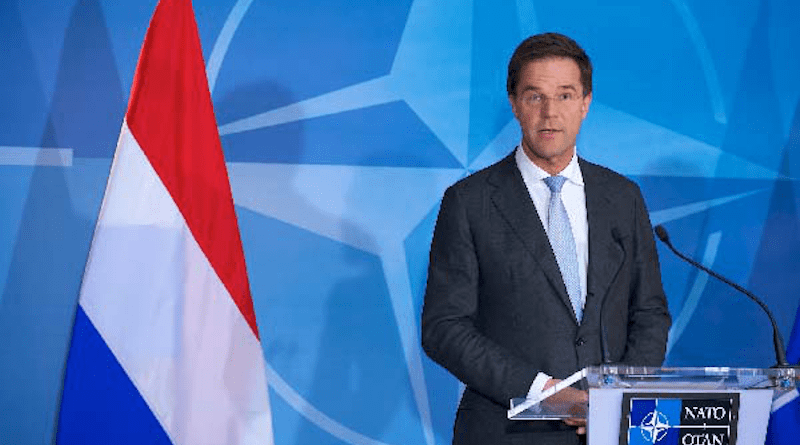Rutte Set To Become Next NATO Chief As Romanian President Iohannis Drops Bid
By EurActiv
By Aurélie Pugnet
(EurActiv) — Outgoing Dutch Prime Minister Mark Rutte is set to become the next secretary-general of NATO as his main opponent, Romanian President Klaus Iohannis, removed himself from the race on Thursday (20 June).
The suspense ended earlier this week when the two main holdouts for the nomination – Hungary and Slovakia – finally approved Rutte as the next chief of the Western military alliance.
The only hurdle was his main opponent, Romania’s Iohannis, and it was only a matter of time until he withdrew his candidacy.
“The president of Romania informed NATO allies that he withdrew his candidacy for the post of secretary-general of the organisation,” the president’s office announced on Thursday (20 June).
The way is now open for Mark Rutte – currently caretaker Prime minister of the Netherlands – to be voted the next Secretary-General.
Rutte is expected to be formally voted in next week, during an ambassadors’ meeting at NATO Headquarters, according to the military alliance’s process.
This is one of the only few formal steps in the appointment of a NATO head follows, in an otherwise a rather informal procedure, where many criteria are taken into account.
Diplomats from several member states insisted in the past few months that the nomination had to take place as early as possible in the year. To avoid the NATO chief nomination becoming part of the political horse-trading of the EU’s top-jobs during the summer.
European leaders are set to agree on the high-level jobs’ allocation next week, one NATO source told Euractiv.
Rutte is therefore set to take over the highest-level position of the military alliance on 1 October from Norwegian Jens Stoltenberg, who held the position for around a decade.
Rutte won the backing of all NATO members, one by one, over the course of the past months, adding more and more pressure on his opponent to withdraw from the race.
The Hungarian Prime minister, who was seen as a potential challenge, gave his approval on Monday (17 June), on the sidelines of the European summit taking place in Brussels. According to the Financial Times, Budapest’s Viktor Orban gave the green light to an opt-out on support to Ukraine.
Orban’s government had previously refused to support the Rutte on the grounds that he had heavily criticised Hungary’s rule of law.
Slovakia, which had until Tuesday (18 June) not given its opinion on the situation, is said to have backed him in return for assistance from the Netherlands in securing air defence support, the President Peter Pellegrini announced.

